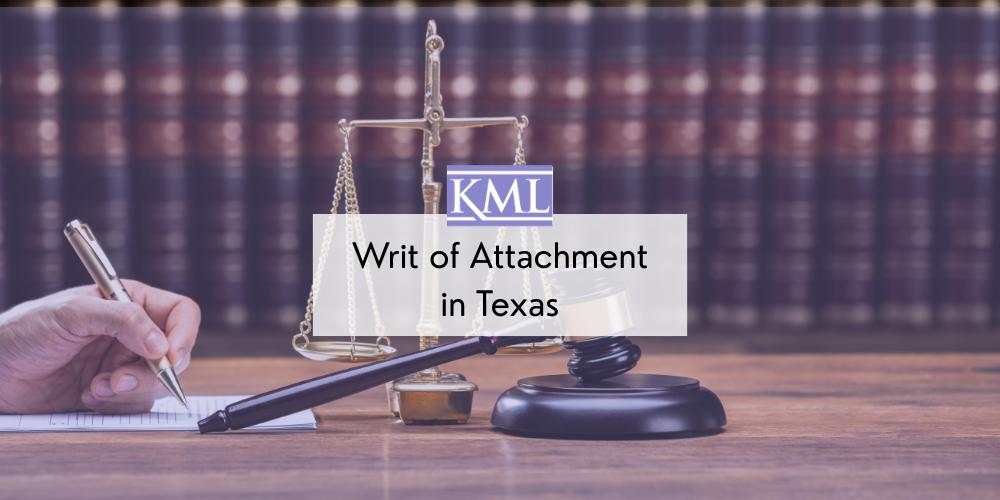When someone takes your child without permission or refuses to return them, the court has legal tools to help. One of those tools is a writ of attachment Texas parents may request to help regain custody or possession of a child. This court order gives law enforcement, like the sheriff or constable, the authority to locate the child, serve the other parent, and return the child to the proper party.
A writ may also be used to secure property or act against a person who is hiding or refusing to follow a court’s judgment. Whether you’re the plaintiff in a child custody case or need help recovering property or enforcing a court order, understanding how a writ works can make a difference in your case.
To speak with experienced family law attorney Katy M. Lovett about filing or responding to a writ of attachment, Texas, call (512) 956-5356 or complete our online contact form today. The Law Office of Katy M. Lovett, PLLC, is here to guide you through the process with clear, compassionate support.
What Is a Writ of Attachment in Texas?
A writ of attachment in Texas is a court order used to secure the possession of a child, property, or person involved in a case. It is commonly requested when the other parent refuses to return a child or when there’s a risk that the respondent may hide, sell, or move property before the judgment is final.
The writ must be filed by the plaintiff through the clerk of the appropriate county and is served by a sheriff or constable. Under Texas Family Code §157.066, a judge may approve the immediate issuance of an attachment writ to recover a child wrongfully held or concealed.
In property disputes or debt recovery, the Texas Rules of Civil Procedure outline the process for securing a writ of attachment to hold property under supervision until the court makes a final decision. The writ may also be used to compel the surrender of an individual in custody cases or to secure items at risk of loss during a suit. This legal tool helps protect the rights of the petitioner, maintain security, and support the lawful execution of a court’s order.
When Is a Writ of Attachment Used in Family Law?
A writ of attachment may be used in family law when a court order has been violated, and swift action is needed to protect a child or enforce the terms of a judgment. In many cases, it’s requested when the other parent refuses to follow a custody order, such as failing to return the child after a scheduled visit or attempting to hide the child from the court’s supervision. The writ allows law enforcement to locate the child, serve the respondent, and immediately return the child to the proper party.
Round Rock family law order enforcement attorney Katy M. Lovett can assist you in filing the necessary petition, requesting a hearing, and following the correct legal process to secure the issuance of the writ. This type of court order plays a crucial role in protecting children and ensuring that parents comply with the law.
Who Can Request a Writ of Attachment in Texas?
In Texas, the following people may request a writ of attachment: any plaintiff or person who has a valid court order, such as a parent with legal custody or visitation rights. The request is typically made by filing a petition with the court, often with the assistance of a family law attorney.
The court may issue an attachment writ when a child or property is wrongfully withheld or when the person subject to the order refuses to comply. Unlike a writ of habeas corpus, which requires a party to appear in court, a writ of attachment authorizes the immediate seizure and delivery of the child or property by law enforcement to the rightful party.
A judge must approve the issuance of the writ, and it must be properly filed and obtained through the correct legal process. Experienced family law attorney Katy M. Lovett assists parents in Round Rock and Williamson County who need to take action when the other parent violates a custody, visitation, or support order.
As a Round Rock child support enforcement lawyer, she helps prepare the required documents, requests a hearing when necessary, and represents clients throughout the proceedings to protect their rights and uphold the court’s orders for possession, supervision, or compliance.
How Does the Writ of Attachment Process Work in Texas?
The writ of attachment process in Texas begins when a parent or party with a valid court order files a request with the district court. This application must be submitted to the clerk and include details about the child or property, the current possession situation, and the reason for immediate action.
The judge will then review the case to decide if the facts support issuing the writ. If approved, the court will sign the order, allowing law enforcement to act. Once the writ is issued, it is served by a sheriff or constable in the appropriate manner as directed by the court. The officer will locate the child or property and take steps to secure it and deliver it to the requesting parent or party.
If a person is wrongfully withholding a child, they may be brought before the court for further proceedings, including a possible habeas corpus hearing. In urgent matters, the writ may be executed immediately to protect the child’s safety and uphold the court’s authority throughout the state.
Emergency Writs of Attachment: Urgent Family Law Matters
An emergency writ of attachment may be obtained when a child is at immediate risk due to abduction, refusal to return the child, or threats to the child’s safety. If a defendant attempts to hide the child or ignores a court order, the requesting party can file for a writ without delay.
The court may approve the writ immediately, allowing a law enforcement agency to enforce the order before a scheduled hearing. In these cases, the writ of attachment may be issued alongside or in place of a habeas corpus petition.
If the other parent is refusing to follow a custody order or you believe your child is at risk, don’t wait to take legal action. Call (512) 956-5356 to speak with Katy M. Lovett about requesting a writ of attachment to protect your rights and secure your child’s safe return.
How Writs of Attachment Relate to Child Custody Cases
A writ of attachment supports enforcement when a person refuses to comply with a court order regarding custody or visitation. It helps protect the requesting parent’s rights and may be used to retrieve a child or enforce transfer of property when a custody or possession order is violated.
Unlike a habeas corpus proceeding, which requires the party to appear in court, this writ allows immediate action. As a Round Rock child custody enforcement attorney, Katy M. Lovett represents parents seeking to stop interference and uphold court-mandated arrangements, to secure the child’s well-being, and comply with the judge’s decision.
Legal Requirements for a Writ of Attachment in Texas
To request a writ of attachment in Texas, the plaintiff must file a sworn affidavit and supporting documents with the court, outlining the facts of the suit and the need for enforcement. This affidavit must clearly explain why the writ is necessary, such as the violation of a judgment involving custody or possession.
The court reviews the request to confirm that due process requirements are met, which may include providing notice to the other party unless the situation qualifies for emergency execution. In some cases, a writ of habeas corpus may also be filed, but a writ of attachment allows for direct action to enforce the order.
Alternatives to a Writ of Attachment
In some situations, parents may have other legal tools available when dealing with custody or possession violations. Depending on the specific facts of the case, options such as contempt proceedings, habeas corpus, or enforcement actions through a standard court order may be more appropriate.
These alternatives can still hold the noncompliant party accountable and help the requesting parent regain rightful possession or enforce a prior judgment. Courts will consider the nature of the violation, the conduct of the defendant, and whether less immediate remedies may be effective before approving a writ of attachment.
Writ of Habeas Corpus
A writ of habeas corpus is used to bring a child or property before the court when someone is wrongfully holding them in violation of a judgment. The requesting party must file the petition and provide proof of the current court order granting possession.
If granted, the writ is served on the opposing party and requires them to appear with the child or property before the court.
Motion for Enforcement
A motion for enforcement allows a parent to request the court to enforce an existing custody or support order. This legal tool can include requests for make-up visitation time, payment of attorney’s fees, or even a judgment for missed support payments. Unlike an attachment writ, this process typically begins with a formal court hearing and may be resolved without law enforcement involvement.
Civil or Criminal Contempt
In more serious cases, civil or criminal contempt may be pursued if a party repeatedly disobeys a court order. This process allows the judge to hold the noncompliant party accountable through fines, jail time, or other penalties. One common question is, how far behind in child support before a warrant is issued in Texas?
While no exact number of missed payments triggers a warrant, courts may issue one when the noncustodial parent is significantly past due and has ignored prior enforcement efforts. These actions help enforce support obligations and protect the child’s well-being.
Why Choose Katy M. Lovett for Enforcement of Family Court Orders?
As a Round Rock family law attorney, Katy M. Lovett offers trusted representation backed by extensive experience in Williamson County courts. She understands how to use enforcement tools such as the writ of attachment, writ of habeas corpus, and contempt actions to protect your rights and uphold the court’s order.
Her approach is both compassionate and strategic, focusing on each family’s unique situation while working efficiently within the local court system to pursue fair outcomes and restore rightful possession or support.
Enforce Your Court Order With Confidence. Contact the Law Office of Katy M. Lovett Today.
If you’re dealing with a custody or support violation, the Law Office of Katy M. Lovett is ready to help you confidently enforce your court order. Whether you need to pursue a writ of attachment, writ of habeas corpus, or other legal remedy, our team will guide you through every step of the process with clear direction and experienced support.
As a Round Rock family law attorney, Katy M. Lovett serves clients throughout Williamson County, using enforcement tools to help parents regain rightful possession of a child or collect overdue support. Contact us at (512) 956-5356 today to schedule a consultation, or use our online contact form to learn more about how we can help you protect your family.


